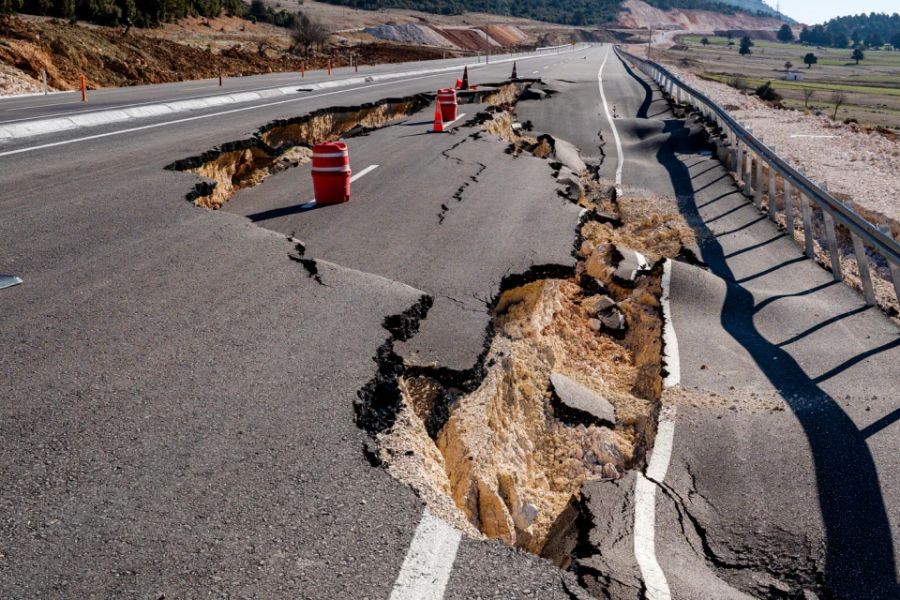In an era where geopolitical tensions extend beyond terrestrial borders, the strategic significance of space warfare is becoming increasingly prominent. For Australia, a country heavily reliant on space-based technologies for both civilian and military applications, understanding the potential impact of space warfare on its defense strategy is crucial. As nations like China and the United States invest heavily in their space capabilities, Australia must consider how these developments could affect its national security and economic stability.
Understanding Space Warfare: A New Frontier
Space warfare refers to the use of space-based technologies and systems for military purposes. This includes satellite communications, reconnaissance, navigation, and even offensive capabilities like anti-satellite weapons. As countries race to establish dominance in this domain, the potential for conflict in space increases, raising questions about international security and the future of warfare.
The Strategic Importance of Space to Australia
Australia's reliance on space-based technologies is significant. According to the Australian Bureau of Statistics, the satellite communication sector contributes over AUD 4 billion annually to the economy. This dependency on space infrastructure makes Australia vulnerable to any disruptions caused by space warfare.
Moreover, as a member of the Five Eyes intelligence alliance, Australia benefits from shared satellite data and intelligence, highlighting the critical role space plays in its defense strategy. The potential for adversarial nations to target these assets underscores the need for Australia to develop a robust space defense strategy.
Current Trends in Space Warfare
Globally, nations are investing in space capabilities to enhance their military prowess. The United States' Space Force, China's advancements in anti-satellite technology, and Russia's development of space-based weapons systems exemplify this trend. For Australia, understanding these developments is essential to anticipate potential threats and align its defense strategy accordingly.
Australia's Response: Strengthening Space Defense
Recognizing the strategic importance of space, Australia has taken steps to bolster its space defense capabilities. The establishment of the Australian Space Agency in 2018 marked a significant step towards enhancing national space capabilities. Furthermore, the Australian Defence Force (ADF) has been investing in space surveillance and tracking systems to monitor potential threats.
In collaboration with the United States, Australia has also been involved in joint military exercises focused on space operations, highlighting its commitment to safeguarding its space assets.
Implications for Australia's Economy and Industry
The impact of space warfare extends beyond defense, affecting various sectors of the Australian economy. Industries reliant on satellite technology, such as telecommunications, agriculture, and mining, could face disruptions in the event of space conflicts. According to the Reserve Bank of Australia, disruptions in satellite communications could have a cascading effect on these industries, leading to significant economic losses.
Moreover, the increasing militarization of space presents opportunities for Australian companies involved in the aerospace and defense sectors. By investing in space technologies, these companies can contribute to national defense while simultaneously driving economic growth.
Regulatory Considerations and International Cooperation
As space becomes a contested domain, international regulations and cooperation are paramount. The Australian Competition & Consumer Commission (ACCC) has highlighted the need for clear regulations governing the use of space-based technologies. Additionally, Australia's participation in international treaties, such as the Outer Space Treaty, underscores its commitment to maintaining peace and security in space.
Collaborative efforts with allies like the United States and the United Kingdom are essential for Australia to enhance its space capabilities and address the challenges posed by space warfare.
Case Study: Australia's Investment in Space Surveillance
In response to the growing threat of space warfare, Australia has invested in the Space Surveillance Telescope (SST) in Western Australia. This facility, developed in partnership with the United States, enhances Australia's ability to detect and track space objects, providing critical data for national defense.
Since its operationalization, the SST has significantly improved Australia's space situational awareness, enabling the ADF to monitor potential threats and protect its space assets effectively. This investment highlights the importance of international collaboration and technological advancement in countering the challenges of space warfare.
Pros and Cons of Space Warfare Impact on Australia
✅ Pros:
- Enhanced National Security: Investment in space capabilities strengthens Australia's defense posture.
- Economic Opportunities: Growth in the aerospace sector can boost the economy.
- International Collaboration: Strengthened alliances with global powers, enhancing strategic partnerships.
❌ Cons:
- Economic Vulnerability: Industries reliant on satellite technology face potential disruptions.
- Regulatory Challenges: Need for clear regulations to govern space activities.
- Risk of Escalation: Militarization of space increases the potential for conflict.
Debunking Myths About Space Warfare
As the discourse around space warfare evolves, several misconceptions persist:
Myth: "Space warfare is purely science fiction." Reality: With advancements in satellite technology and anti-satellite weapons, space warfare is a tangible threat, as evidenced by recent developments in global military strategies.
Myth: "Only superpowers are involved in space warfare." Reality: While nations like the US and China lead in space capabilities, smaller countries, including Australia, are actively investing in space defense to protect their interests.
Myth: "Space warfare will not affect everyday life." Reality: Disruptions in satellite communications can impact essential services such as GPS, telecommunications, and internet connectivity, affecting daily life and economic activities.
Future Trends: Australia's Role in Space Warfare
As space warfare continues to evolve, Australia's role in this domain is likely to expand. By 2030, it is anticipated that Australia will enhance its space capabilities through increased investments in satellite technology and international collaborations. This expansion will not only bolster national defense but also position Australia as a key player in the global space industry.
Moreover, the development of space-based strategic deterrents could serve as a critical component of Australia's defense strategy, ensuring the protection of its interests in an increasingly contested domain.
Conclusion
Space warfare presents both challenges and opportunities for Australia. By investing in space capabilities and strengthening international collaborations, Australia can mitigate potential threats while capitalizing on economic opportunities. As the landscape of space warfare continues to evolve, Australia must remain vigilant and proactive in safeguarding its interests and ensuring national security. What strategies do you believe will be most effective for Australia in navigating the complexities of space warfare? Share your insights in the comments below!
Related Search Queries
- Australia space defense strategy
- Impact of space warfare on Australian economy
- Future of space warfare
- Australia space surveillance capabilities
- Space warfare implications for Australia
People Also Ask
- How does space warfare impact Australia's economy? Space warfare can disrupt satellite communications, affecting industries like telecommunications and mining, leading to significant economic losses according to the Reserve Bank of Australia.
- What measures is Australia taking to enhance its space defense? Australia has invested in the Space Surveillance Telescope and collaborates with the US on joint military exercises to bolster its space defense capabilities.
- What are the biggest misconceptions about space warfare? One common myth is that space warfare is science fiction, but advancements in satellite technology and anti-satellite weapons prove it's a real threat.
As Australia navigates the complexities of space warfare, staying informed and proactive will be key to maintaining national security and economic stability. Engage in discussions on LinkedIn AU, Startup AU forums, or Business Council of Australia groups to share insights and strategies.




































AndyCarmic
5 days ago